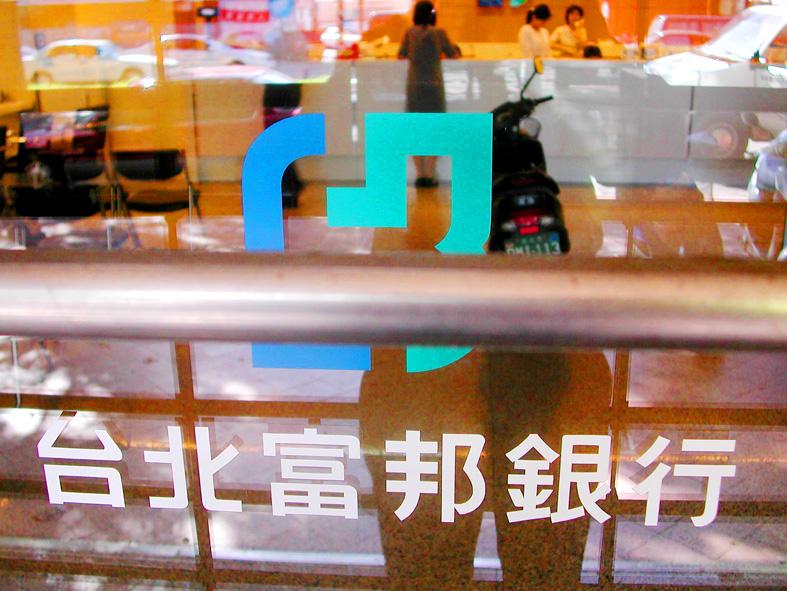Taipei Fubon Commercial Bank (台北富邦銀行) yesterday approved a three-year sustainability-linked loan (SLL) to audio electronics maker Merry Electronics Co (美律實業), the first such loan granted by a local bank.
However, the bank did not reveal the amount of the loan.
Foreign banks were the first to offer SLLs in Taiwan. DBS Bank Taiwan (星展銀行) provided NT$2 billion (US$70.66 million at the current exchange rate) of SLLs to AU Optronics Corp (友達光電) in 2019, followed by HSBC Bank (Taiwan) Ltd’s (匯豐台灣商銀) two SLLs totaling NT$450 million to Taya Group (大亞集團) and Sinbon Electronics Co (信邦電子) last year.

Photo: CNA
Like HSBC Taiwan and DBS Taiwan, Taipei Fubon would lower the loan’s interest rate if the borrower’s sustainability performance improves, which includes greenhouse gas emissions, power management and energy efficiency, the bank told the Taipei Times.
HSBC Taiwan also encouraged its borrowers to use the loans for their operations related to green energy or greenhouse emissions reduction, but Taipei Fubon said it has no such requirements.
“While green loans are only used to finance green projects, capital from SLLs can be used for general corporate purposes, according to the sustainability linked loan principal set by the Asia Pacific Loan Market Association,” the bank said.
“This would provide more flexibility for borrowers, but we would incentivize them to improve sustainability performance by rate cuts,” it said.
The Financial Supervisory Commission is looking into the international standards on SLLs and would consider issuing guidelines for banks on the conditions to approve such loans, a commission official familiar with the matter said by telephone yesterday.
The guidelines might have a definition of SLL, as well as regulations about banks’ and debtors’ information disclosure about how the special loans boost companies’ sustainability performance, the official said.
“The Taipei Exchange has named 16 specific purposes for which the proceeds from a sustainable bond can be used, such as green energy, water conservation, affordable housing and food safety, and the proceeds from an SLL might apply to the same purposes,” the official said.
Companies should set a sustainability target before taking out a loan, and explain how they would appoint an independent third-party agency to evaluate if the debtors meet their targets, the official added.
Banks can set their own rules until the commission issues guidelines, but they should confirm that the loans are utilized properly, the official said.

Semiconductor business between Taiwan and the US is a “win-win” model for both sides given the high level of complementarity, the government said yesterday responding to tariff threats from US President Donald Trump. Home to the world’s largest contract chipmaker, Taiwan Semiconductor Manufacturing Co (TSMC, 台積電), Taiwan is a key link in the global technology supply chain for companies such as Apple Inc and Nvidia Corp. Trump said on Monday he plans to impose tariffs on imported chips, pharmaceuticals and steel in an effort to get the producers to make them in the US. “Taiwan and the US semiconductor and other technology industries

The US Federal Reserve is expected to announce a pause in rate cuts on Wednesday, as policymakers look to continue tackling inflation under close and vocal scrutiny from US President Donald Trump. The Fed cut its key lending rate by a full percentage point in the final four months of last year and indicated it would move more cautiously going forward amid an uptick in inflation away from its long-term target of 2 percent. “I think they will do nothing, and I think they should do nothing,” Federal Reserve Bank of St Louis former president Jim Bullard said. “I think the

SMALL AND EFFICIENT: The Chinese AI app’s initial success has spurred worries in the US that its tech giants’ massive AI spending needs re-evaluation, a market strategist said Chinese artificial intelligence (AI) start-up DeepSeek’s (深度求索) eponymous AI assistant rocketed to the top of Apple Inc’s iPhone download charts, stirring doubts in Silicon Valley about the strength of the US’ technological dominance. The app’s underlying AI model is widely seen as competitive with OpenAI and Meta Platforms Inc’s latest. Its claim that it cost much less to train and develop triggered share moves across Asia’s supply chain. Chinese tech firms linked to DeepSeek, such as Iflytek Co (科大訊飛), surged yesterday, while chipmaking tool makers like Advantest Corp slumped on the potential threat to demand for Nvidia Corp’s AI accelerators. US stock

Cryptocurrencies gave a lukewarm reception to US President Donald Trump’s first policy moves on digital assets, notching small gains after he commissioned a report on regulation and a crypto reserve. Bitcoin has been broadly steady since Trump took office on Monday and was trading at about US$105,000 yesterday as some of the euphoria around a hoped-for revolution in cryptocurrency regulation ebbed. Smaller cryptocurrency ether has likewise had a fairly steady week, although was up 5 percent in the Asia day to US$3,420. Bitcoin had been one of the most spectacular “Trump trades” in financial markets, gaining 50 percent to break above US$100,000 and